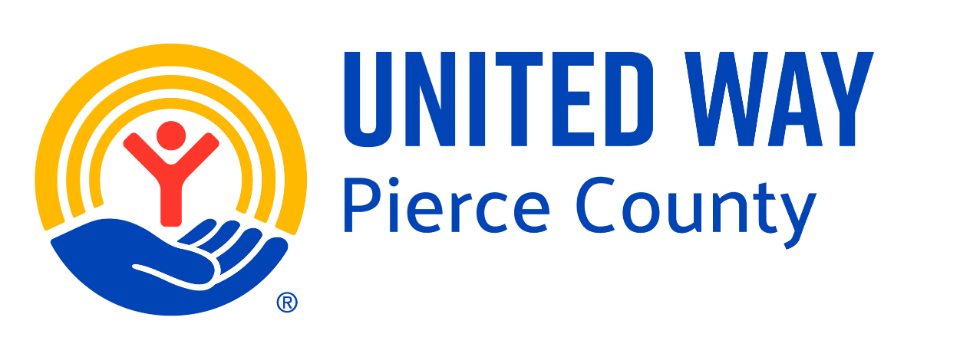The 21-Day Equity Challenge - A Self-Guided Learning Journey
What does it take to go from being an ally to a leader in the fight for equity?
United Way of Pierce County invites you to participate in the 21-Day Equity Challenge to become a leader in the fight for equity. You can help end racism and build a community in which people's outcomes in life are not determined by their skin color. Through 21 days of equity challenges, you will gain awareness and understanding of racism, which asserts itself in nearly all aspects of our daily lives.
Debby Irving and Dr. Eddie Moore, Jr. developed the original equity challenge, and the United Way Worldwide Diversity, Equity and Inclusion team curated the content for United Way. United Way of Pierce County has further adapted the challenge for our community with the help of partners. The 21-Day Equity Challenge is an interactive digital resource for individuals and groups to deepen their understanding of -- and willingness to confront -- racism. The Challenge will inspire you to act, on your own or with others in your organization, business or group, to dismantle systemic racism.
What happens during the Challenge?
Do I participate in the Challenge alone or with others?
What if I can't engage in all the daily emails?
CLICK HERE to get notifications of future Equity Challenge opportunities!

Why is this important for Pierce County? Meet ALICE...
As Robert D. Putnam and Shaylyn Romney Garrett document in their recent book The Upswing: How America Came Together a Century Ago and How We Can Do It Again, African Americans are worse off today than in 1968 across many socioeconomic measures of well-being. We write report after report documenting the levels of racial, economic, and social inequalities. We march, vote, and protest to incremental effect. The problems persist and, in fact, have become deeper and more embedded into the fabric of our community.
Financial Hardship In Black Households
- Black 47%
- Hispanic 43%
- Native 43%
- Asian 39%
- Hawaiian 35%
- Two or More Races 39%
KNOW THE FACTS
- Racial and ethnic disparities in hardship are growing, not shrinking. From 2010 to 2018 — which covers the “recovery” from the Great Recession — the number of Black households below the ALICE Threshold (the minimum income needed to afford household basics) increased by 12%, while the number of White households struggling to make ends meet barely changed, increasing only 2%.
- Black families continue to have persistently lower wages, fewer educational and job opportunities, poorer health, and lower life expectancy. Structural racism and discrimination continue to restrict job opportunities and wage levels for Black workers. Even when controlling for age, gender, education, and region, Black workers are paid 16% less than White workers (up from 10% in 2000). This disparity directly impacts quality of life for Black households and communities. Black families remain disproportionately likely to live in substandard housing in neighborhoods of concentrated poverty — those with few grocery stores, banks, parks, or recreation facilities, with inadequate health care and under-resourced public schools, and with high levels of violence and exposure to environmental hazards.
- Black households continue to be less able to accumulate and pass on wealth. Like disparities in income disparities in wealth and assets persist for Black households. Unable to save, many Black families do not have the means to build assets, let alone catch up to those who have been building assets for generations. The discrimination that these families face in areas from hiring to housing to lending, when compounded, creates an even bigger wealth gap.
- Black households are at greater risk from COVID-19. Black people are contracting COVID-19 at higher rates and dying at higher rates than their White counterparts. These disparities are being fed by multiple factors — including more Black workers in “essential” jobs that require on-site, frontline presence with a higher risk of exposure, and historically poorer access to quality health care for Black communities.
DAILY CHALLENGE TOPICS
Day 1 - Race & Racism
Day 2 - Internalized Racism
Day 3 - Biases
Day 4 - Microaggressions
Day 5 - White Privilege
Day 6 - Reflection Day
Day 7 - Systemic Racism
Day 8 - History of Inequity
Day 9 - Racism in Criminal Justice
Day 10 - Racism in Politics
Day 11 - Racism in Healthcare
Day 12 - Racism in the Media
Day 13 - Racism in Education
Day 14 - Reflection: Racism in Our Society
Day 15 - Opportunities and Race
Day 16 - Black Business & Entrepreneurship
Day 17 - Housing Inequity
Day 18 - Respecting Cultural Differences
Day 19 - How to Make Change
Day 20 - Reflection
Day 21 - Next Steps/Taking Action





